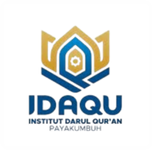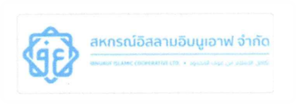Five Challenges to Quranic Learning in Islamic Educational Institutions
Keywords:
problems, solutions, learning, the QuranAbstract
The Quran learning process in various Islamic educational institutions, such as Quranic Education Institutions and Mosques, still faces various obstacles that affect learning effectiveness. This study aims to identify challenges in Quranic learning in these institutions. This study used a qualitative method with a case study design to provide an understanding of the existing problems. Data were collected through in-depth interviews with nine informants, consisting of three educators and six students from three different Quranic Education Institutions. A purposive sampling technique was used to select relevant informants with direct experience with the issues studied. The results of the study indicate five main challenges in Quranic learning in Islamic educational institutions. First, the lack of professional educators with adequate competence in teaching the Quran, both in terms of mastery of Tajweed, teaching methods, and pedagogical skills. Second, the monotonous daily lesson schedule, which has the potential to reduce student motivation. Third, short learning time, making it difficult for educators to deliver material optimally. Fourth, inadequate learning facilities, such as a lack of Mushafs, guidebooks, or comfortable study rooms. Fifth, the stigma from students' parents who tend to blame teachers for their children's learning outcomes. It is hoped that all the results of this research can serve as a reference for the community and stakeholders to continue improving the quality of Quranic education in Islamic institutions, so that the Muslim generation can learn the Quran more effectively and in depth.
References
Abebe, S. A. (2023). Refugee entrepreneurship: systematic and thematic analyses and a research agenda. Small Business Economics, 60(1), 315-350. https://doi.org/10.1007/s11187-022-00636-3
Arif, M. (2019). Quran As An “Open Book” In Educationalperspective: The Significant Meaning Of Pedagogical Values And Productive Reading. Sunan Kalijaga International Journal on Islamic Educational Research, 3(2), 1-16. https://doi.org/10.14421/skijier.2019.2019.33.01
Cevikbas, M., Koenig, J., & Rothland, M. (2024). Empirical research on teacher competence in mathematics lesson planning: Recent developments. ZDM–Mathematics Education, 56(1), 101-113. https://doi.org/10.1007/s11858-023-01487-2
Chotimah, C., Qudsy, S. Z., & Yusuf, M. (2025). Superficial implementation of religious moderation in Islamic educational management. Cogent Education, 12(1), 2442235. https://doi.org/10.1080/2331186X.2024.2442235
De Paoli, S. (2024). Performing an inductive thematic analysis of semi-structured interviews with a large language model: An exploration and provocation on the limits of the approach. Social Science Computer Review, 42(4), 997-1019. https://doi.org/10.1177/08944393231220483
Fedajev, A., Jovanović, D., Janković-Perić, M., & Radulescu, M. (2024). Exploring the Nexus of Distance Learning Satisfaction: Perspectives from Accounting Students in Serbian Public Universities During the Pandemic. Journal of the Knowledge Economy, 1-31. https://doi.org/10.1007/s13132-024-02138-x
Hidayah, N., Annisa, A. N., Wulandari, R., & Nihayah, U. (2024, May). Islamic Education In Montongsari Village: A Case Study Of Educational Materials From The Perspective Of The Quran And Hadith. In Prosiding Seminar Nasional Pendidikan, Bahasa, Sastra, Seni, Dan Budaya (Vol. 3, No. 1, pp. 190-201). https://doi.org/10.55606/mateandrau.v3i1.2015
Hidayat, S., Amirsyah, A., Affandi, L., & Rahmat, M. (2022). The Impact of the Digital Quran Thematic Learning Model on the Learning Achievement of Santri at Islamic Boarding Schools in Bandung Regency. QALAMUNA: Jurnal Pendidikan, Sosial, dan Agama, 14(2), 947-960. https://doi.org/10.37680/qalamuna.v14i2.3764
Holidah, N., Masrurah, W., & Iftitah, S. L. (2022). Teacher Strategies for Improving the Ability to Read the Quran in Early Childhood. GENIUS: Indonesian Journal of Early Childhood Education, 3(2), 91-104. https://doi.org/10.35719/gns.v3i2.66
Indrioko, E. (2022). TPQ Teacher's Motivation in Teaching the Quran Viewed from the Perspective of Maslow's Theory of Needs. Scaffolding: Jurnal Pendidikan Islam dan Multikulturalisme, 4(3), 237-249. https://doi.org/10.37680/scaffolding.v4i3.1730
Jaeni, U., & Basuki, I. (2020). Culture Learning Management Quran Model Tilawati to Improve Student Character. IJORER: International Journal of Recent Educational Research, 1(3), 286-300. https://doi.org/10.46245/ijorer.v1i3.65
Mahmud, A. (2023). The Value of Religious Tolerance in the Interpretation of the Quran and its Relevance in Learning in Higher Education. International Journal of Social Service and Research, 3(5), 1247-1257. https://doi.org/10.7401/hms52091
Maulana, I. (2024). Islamic Education Curriculum Based On The Quran: Aligning Education With Societal Needs. Ihtirom: Jurnal Manajemen Pendidikan Islam, 3(2), 241-258. https://doi.org/10.70412/itr.v3i2.113
Mishra, S., & Dey, A. K. (2022). Understanding and identifying ‘themes’ in qualitative case study research. South Asian Journal of Business and Management Cases, 11(3), 187-192. https://doi.org/10.1177/22779779221134659
Mohidem, N. A., & Hashim, Z. (2023). Integrating environment with health: an Islamic perspective. Social Sciences, 12(6), 321. https://doi.org/10.3390/socsci12060321
Naeem, M., Ozuem, W., Howell, K., & Ranfagni, S. (2024). Demystification and actualisation of data saturation in qualitative research through thematic analysis. International Journal of Qualitative Methods, 23, 16094069241229777. https://doi.org/10.1177/16094069241229777
Nilimaa, J. (2023). New examination approach for real-world creativity and problem-solving skills in mathematics. Trends in Higher Education, 2(3), 477-495. https://doi.org/10.3390/higheredu2030028
Nursikin, M., & Nugroho, M. A. (2021). Internalization Of Quranic Values In The Islamic Multicultural Education System. Didaktika Religia, 9(1), 19-38. https://doi.org/10.30762/didaktika.v9i1.3276
Oktavia, G., Febriani, A., Hasnah, H., Sabrina, V., & Rahman, I. (2024). Enam Metode Menghafal Quran Mahasiswa di Perguruan Tinggi Quran Indonesia. Jurnal Kepemimpinan dan Pengurusan Sekolah, 9(1), 12-23. https://doi.org/10.34125/jkps.v9i1.105
Prayogi, A., Setiawan, S., Tabi'in, A., & Muslih, M. (2024). Training and Mentoring for Students of the TPQ Quran Education Park, Bulu Village, Batang Regency in the Haflah Akhirussanah Performance. Al-arkhabiil: Jurnal Pengabdian Masyarakat, 4(2), 38-43. https://doi.org/10.51590/jpm_assunnah.v4i2.733
Rahmad, A., Rahmi, R., Nakita, D. S., Akbar, Z., & Rahman, R. P. I. (2021). Implementation of Learners' Methods of Memorizing the Quran at the Dar El-Iman Indonesia Modern Islamic Boarding School. Islamic Studies, 2622, 741x. http://ijmurhica.ppj.unp.ac.id/index.php/ijmurhica
Rahman, I., Iskandar, M. Y., Kustati, M., & Sepriyanti, N. (2024). Sustainable Development: Implementation of The Talqin Method In Memorizing The Quran. Jurnal Kepemimpinan dan Pengurusan Sekolah, 9(1), 99-108. https://doi.org/10.34125/jkps.v9i1.355
Rahman, I., Nisa, K., & Saputri, R. E. (2020). Seven Students' Activities: A Case Study on Rumah Tahfidz An-Nur Daily Routine and Memorization Levels. International Journal of Multidisciplinary Research of Higher Education (IJMURHICA), 3(3), 110-120. https://doi.org/10.24036/ijmurhica.v3i3.184
Rahman, I., Wati, W., Putri, N., Wulandari, R., & Habibi, U. A. (2025). Commercialization of Quranic Tahfidz Houses in Indonesia: Da'wah or Business?. Journal of Quranic Teaching and Learning, 1(2), 34-48. https://joqer.intischolar.id/index.php/joqer/article/view/6
Rifa’i, A., Najmudin, A., Radinata, R., Rohmah, K., Rahayu, S. D., Maimunah, S., ... & Alfifah, B. (2024). Growing Developing Talents and Increasing Self-Confidence in Children at TPQ An-Nuriyah through Mc and Dai Training. International Journal of Community Engagement Payungi, 4(1), 33-40. https://doi.org/10.58879/ijcep.v4i1.44
Rohma, A. N., & Nadlif, A. (2023). Parents Strategies In Fostering Interest In Reading Quran In Early Childhood At TPQ Masyithoh. Jurnal At-Tarbiyat: Jurnal Pendidikan Islam, 6(3). https://doi.org/10.37758/jat.v6i3.855
Rosalina, A., Nurdarmawan, A., & Firmanda, K. E. (2024). The Effect Of Literacy Habits And The Use Of Quran Learning Methods On Students'Quran Reading Ability. Pedagogik: Jurnal Pendidikan, 11(2).https://doi.org/10.33650/pjp.v11i2.8969
Saunders, C. H., Sierpe, A., von Plessen, C., Kennedy, A. M., Leviton, L. C., Bernstein, S. L., ... & Leyenaar, J. K. (2023). Practical thematic analysis: a guide for multidisciplinary health services research teams engaging in qualitative analysis. bmj, 381. https://doi.org/10.1136/bmj-2022-074256
Shoaib, M., Zhang, S., & Ali, H. (2023). A bibliometric study on blockchain-based supply chain: a theme analysis, adopted methodologies, and future research agenda. Environmental Science and Pollution Research, 30(6), 14029-14049. https://doi.org/10.1007/s11356-022-24844-2
Sirin, M. Z., Sari, Y., Ramadhani, F., & Jamasir, D. (2021). The Quran Learning in Islamic Education Institutions in Indonesia: An Analysis Study of the Problems and Solutions. International Journal of Multidisciplinary Research of Higher Education (IJMURHICA), 4(4), 146-155. https://doi.org/10.24036/ijmurhica.v4i4.86
Stimpson, B., & Calvert, I. (2021). Quranic educational philosophy: Foundational principles of education in Islam’s holiest text. Religions, 12(2), 82. https://doi.org/10.3390/rel12020082
Suseno, H., & Indra, F. (2024). Management of the Tilawatil Quran Development Institute in Realizing Quality Qori-Qoriah in Langkat Regency. Daengku: Journal of Humanities and Social Sciences Innovation, 4(4), 532-539. https://doi.org/10.35877/454RI.daengku2712
Wafa, A. (2024). Design of Quranic Learning Based on Herbartian Method: A Case Study in Educational Institutions in Indonesia. Al-Lubab: Jurnal Penelitian Pendidikan dan Keagamaan Islam, 10(2), 15-31. https://doi.org/10.19120/al-lubab.v10i2.5949
Wajdi, M. B. N., Baskari, T. D. K., Ashari, R., Marlina, Y., & Faishol, R. (2024). Implementation of the Improvement of the Quran Literacy Program for Modern Boarding School Students. IERA, Islamic Education and Research Academy, 5(2), 58-68. https://doi.org/10.59689/iera.v5i2.1529
Warsah, I., Morganna, R., Warsah, B. A. A., & Warsah, B. H. H. (2024). Islamic Psychology-Based Educational Strategies For Student Character Development. AJIS: Academic Journal of Islamic Studies, 9(2), 305-354. https://doi.org/10.29240/ajis.v9i2.11326
Widodo, W. (2024). Learning Management of TPQ Al-Hilal Malang in Solving Illiteracy Reading The Quran and Increasing Student Creativity. Jurnal Indonesia Sosial Teknologi, 5(01), 263-268. https://doi.org/10.59141/jist.v5i01.859
Zabidi, F. N. M., Abd Rahman, N., & Halim, L. (2021). Integration of islamic values for environmental conservation: An analysis of school textbooks. Religions, 12(7), 509. https://doi.org/10.3390/rel12070509
Zamiri, M., & Esmaeili, A. (2024). Strategies, methods, and supports for developing skills within learning communities: A systematic review of the literature. Administrative Sciences, 14(9), 231. https://doi.org/10.3390/admsci14090231
Zunaida, L., & Aulia, M. A. (2023). The Strategy Of The Head Of The Quran Education Park In Improving Student Achievement. Jurnal Inovatif Manajemen Pendidikan Islam, 2(2), 62-71. https://doi.org/10.38073/jimpi.v2i2.1782
Downloads
Published
Issue
Section
License
Copyright (c) 2025 Assylkhan R. Abishev, Mahmoud Abdullah, Naser Ali Abdulghani (Author)

This work is licensed under a Creative Commons Attribution-ShareAlike 4.0 International License.











